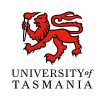The University of Tasmania is investing in a new high-performance computer cluster (HPC) to meet the needs of a research thrust that is becoming increasingly data intensive. University Acting Deputy Vice-Chancellor (Research) Professor Clive Baldock said the investment – which will include hardware and data centre facilities – will strengthen the University’s research effort to …
Category: Events
Sep 06
Cloud Starter Workshops
Cloud Computing is fast becoming the most effective way for researchers to use “commodity” computing and storage resources for their eResearch needs. The NeCTAR Research Cloud (built on OpenStack) delivers these resources freely to researchers throughout Australia. This environment allows research to grow and expand beyond desktop and local infrastructure, enabling truly global research collaboration, expandable …
Jul 29
New $8.75 million research resource launched
Tasmania continues a 20-year tradition at the crest of the nation’s research computing capacity with the launch today of the Tasmanian eResearch Cloud. The cloud will store important scientific data collections and also allow researchers to access enormous computing power from a standard desktop PC. The $8.75 million project is the result of a collaboration …
Jun 18
MARVLIS Software Release v1.0
MARVLIS (Marine Virtual Laboratory Information System) has now been completed. MARVLIS is an “add-on” or a value added software package that provides a number of tools that can be used by the Marine Research Community. If you would like to learn more about MARVLIS, then please visit the MARVLIS blog. MARVLIS has been produced with …
Nov 16
eResearch 2012
Recently TPAC attended the eResearch Australasia 2012 Conference, throughout the week TPAC had the opportunity to discuss its current facilities and projects with researchers, service providers and developers. TPAC aims to ensure its services meet the expectations of its users, and understands the importance of engaging with the research community. Thank you to everyone who …





Recent Comments